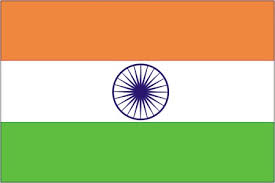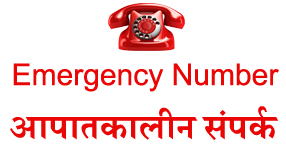Address by Ambassador Jaideep Mazumdar at the International Symposium on ‘Ayurveda, Yoga and Meditation for Active and Healthy Aging’ on 15 November 2022 in Graz, Austria
A very good morning to you all
- It is a pleasure for me to address the inaugural session of this Symposium on ‘Ayurveda, Yoga and Meditation for Active and Healthy Aging’ in the beautiful city of Graz.
- We in the Indian Embassy in Vienna are happy to support this international event that brings together so many experts and professionals in this field from several countries in Europe and India. I note that we have academics and experts in the field from Slovenia, Croatia, the Czech Republic, the UK, Netherlands, Germany and of course from Austria and India.
- I congratulate the Medical University of Graz, especially Dr Nandu Goswami and President of Network of Geriatric Medicine in Styria, Dr Walter Schippinger for resuming this Symposium after a gap of 2 years on account of the Covid-19 Pandemic. I am also happy to see the CEO of Human Technology Styria, Dr Michael Pichler participating.
- Covid pandemic has been a stark reminder that we live in an interconnected and interdependent world, and we succeed or fail together. The pandemic affected not only physical health but also psychological, social as well as the spiritual health of people across the world.
- The theme of this year’s symposium - Ayurveda, Yoga and Meditation for active and healthy aging - is of particular significance in Europe where the median age in many countries is touching 50 and preventive healthcare and active, meaningful lifestyle for the aged has become an important area of concern for practitioners, researchers and policy makers alike.
- Although India has one of the world’s youngest populations, there are more than 90 million people above the age of 65 in the country as well. For perspective, this is ten times the population of Austria. Thus, research and development in the field of active and healthy aging is emerging as an important area of emphasis in the healthcare system in India as well.
- The Government of India established a dedicated Ministry of AYUSH in 2014 with the view to promote research and awareness about these important knowledge systems. This owes its origin to the Department of Indian Systems of Medicine and Homeopathy set up in 1995.
- AYUSH is the acronym that encompasses Ayurveda, Yoga and naturopathy, Unani and Siddha – all Indian systems - and Western Homeopathy. Although an acronym, AYUSH literally means longevity or long life.
- With advances in nutrition, standards of living and modern medical science, longevity is more or less assured.
- What is important today is not so much a long life, but the quality of a long life.
- And in that, the quality of long life is not merely the absence of debilitating illness – because medical science can still prolong life even with debilitating illness – but physical health along with mental and spiritual well being.
As I said to some of you last night, India is taking over the Chair of the G-20 on the First of December this year. The G-20 includes 19 countries and the European Union. They together account for 90% of the worlds GDP, 80% of world trade and two thirds of the world’s population. The guiding principle that India has chosen for our leadership of this grouping for the coming year is derived from the ancient text of the Upanishads – Vasudhaiva Kutumbakam – all living beings are one family. And the motto we have chosen is - One World One Family One Future.
We believe that only with such a view of the world can we adopt a collaborative approach with which humanity can face the common challenges, be it combating climate change or ensuring health, happiness, and wellbeing for all.
Yoga and Ayurveda are India’s gifts to the world. These systems have evolved in India over thousands of years but they are really universal. They do not necessarily have to be rooted in any belief system or religion. And that is what accounts for their great acceptability and popularity the world over.
To give you an example, I happen to also be accredited as India’s Ambassador to Montenegro. Montenegro too has a centre of Ayurveda and they tell me that 90 percent of all the common Ayurvedic medicinal plants are plentiful in the wild in the forests of Montenegro.
Our efforts to spread knowledge of traditional systems outside India include:
- setting up Academic Chairs with 15 foreign Universities/ institutes under which AYUSH experts are deputed to undertake teaching/ training / research activities.
- Offering over 100+ Fellowships/ Scholarships every year to the eligible foreign nationals from 99 countries for pursuing undergraduate, postgraduate and Ph. D courses in AYUSH systems in premier Institutes in India.
- Establishment of a Yoga Certification Board (YCB) with the objective of bringing about quality and uniformity in knowledge and skills of Yoga professionals across the world through certification programs
- The government of India is also incentivizing AYUSH drug manufacturers, entrepreneurs, AYUSH institutions, etc. for (i) participating in international exhibitions, conferences, workshops, trade fairs, etc. for generating awareness amongst the public about the AYUSH systems of medicine and; (ii) registration of AYUSH products with regulatory authorities in foreign countries.
- We have also established a Pharmacopoeia Commission for Indian Medicine and Homoeopathy (PCIM&H) for standardization of drugs and treatments. The Pharmacopoeia Commission has published more than 645 standards of Ayurveda Single drugs, and 202 compound Ayurveda Drugs in the form of respective Pharmacopoeias.
- The Bureau of Indian Standards (BIS) is working to formulate International Standards in collaboration with the International Organization for Standardization (ISO). Towards this, a Working Group (WG–10) on ‘Traditional Medicine’ has been created in the ISO/TC-215 under ‘Health Informatics’.
- As a result of the above efforts, Ayurveda is now studied and researched in various Universities and research institutions across the globe.
- I recall the MoU signed between the Medical University of Graz and the All India Institute of Ayurveda in 2018.
- And I applaud the initiative by the Medical University of Graz for promoting research in Yoga, Ayurveda and meditation and undertaking research that brings out the scientific evidence to these millennia old traditions.
- The MoU has provisions for exchange of short term teachers for special courses and we should make use of that provision to further enhance exchanges and cooperation in this field. I also encourage both sides to take up more collaborative research in the field.
Friends,
- India-Austria relations are on the upswing. Our two foreign ministers have met four times this year alone. We are working together in a number of different areas.
- One area where I see great potential for cooperation is that of startups and innovation in the field of life-sciences and human technologies. Some of you may have noticed a recent investment by one of India’s biggest industrialists - Ratan Tata - in a startup that provides ‘companionship as a service’ to senior citizens. I believe there is a lot of potential of joint research and development of products and services that facilitate active and healthy aging and ensure a dignified life for senior citizens. With this end in view, we are working to include India in Austria’s Global Incubator Network and hope that this will come about soon.
- Recently, about 40 Startup companies from India visited Austria in September 2022. Some of these companies are also looking at Austria and city of Graz as their base in Europe.
- India and Austria are also negotiating an agreement on Mobility and Migration that will make it easier for professionals in this field to live and work in Austria in accordance with the requirements of the Austrian people. I expect this agreement to be signed as early as the beginning of next year.
- Next year India and Austria will celebrate 75 years of diplomatic relations – a landmark event for any country. Among all the different areas of our bilateral cooperation, we also hope to raise our cooperation in this area of health, healthy living and healthy aging to new heights.
- Let me conclude by wishing this Symposium all success.
- I thank you for your patience.















